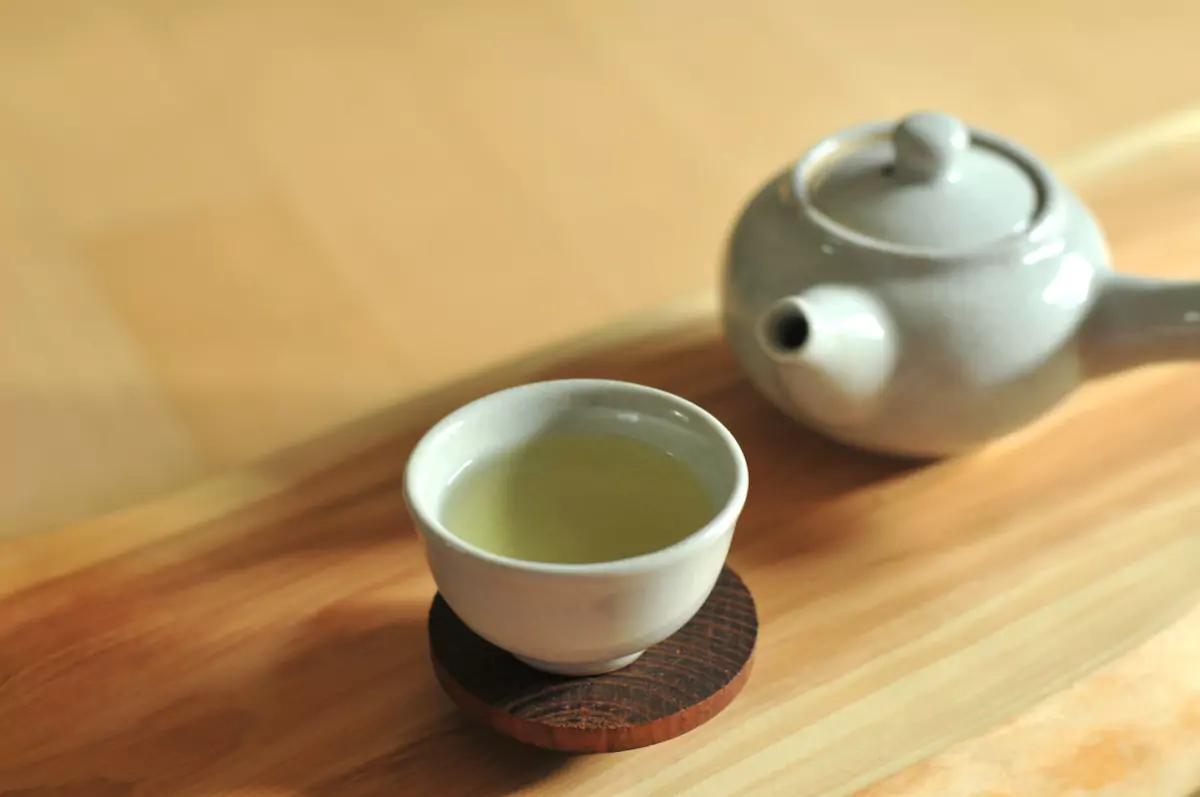If you assumed that green tea is a recent trend aimed at enhancing our modern quality of life, think again. This unassuming elixir has been cherished for thousands of years, gracing the cups of those who came before us. Its legacy stretches far beyond the realms of contemporary trends, rooted in the depths of ancient wisdom and tradition.
Nowadays, the term “superfood” gets tossed around in many articles and conversations. But what does it really mean? Think of superfoods as those nutritional allies, the ones delivering a bounty of benefits to your diet.
Green tea embodies this idea perfectly – a shining illustration of a superfood that holds the potential to enhance your well-being. However, it’s vital to grasp that while superfoods can be powerful, they’re not magic fixes.
Their potency depends on how they fit into your overall dietary plan, and overdoing them won’t guarantee superhuman results. Instead, it’s about finding the right balance and understanding that while superfoods can play a valuable role, they’re just a piece of the puzzle that makes up your overall health journey.
DECODING GREEN TEA’S INGREDIENTS
Green tea is like a secret potion brimming with nutrients. At the heart of it all? Antioxidants called catechins, with one in particular, EGCG, take centre stage. These antioxidants are like the defenders of your body, standing up against troublemakers called free radicals.
Picture them as your body’s very own shield, standing strong against potential harm. You can reap the benefits of green tea in multiple ways – enjoying it as a comforting drink or discovering its presence in various foods. It’s even available as green tea extract in powder form, adding a touch of its goodness to your culinary creations.
POTENTIAL CANCER PROTECTION AND ONGOING RESEARCH
Turning our attention to cancer protection, green tea’s potential shines with promise. Some studies suggest its antioxidants could curb the growth of certain cancers, thanks to their potent anti-inflammatory properties. These antioxidants may lower the inflammation that might otherwise fuel cancer cells.
However, the puzzle isn’t complete. More research is needed to solidify this connection. It’s important to note that while green tea shows potential as an adjunct to medical treatment, it’s not a standalone solution. As we await science’s full revelation, let’s acknowledge that green tea may play a supporting role alongside conventional treatments and shouldn’t be regarded as a replacement or primary treatment for cancer.
POST WORKOUT RECOVERY
Much like how green tea’s anti-inflammatory properties show promise in potentially reducing cancer-related inflammation, they can also work to ease the inflammation in your body after intense activity. The antioxidants in green tea, especially the potent EGCG, operate as a soothing retreat for your body post-exercise.
These antioxidants might help in alleviating muscle soreness and supporting your overall recovery process. However, the inflammation process after a workout can be crucial for the muscle’s adaptation and improvement over time.

TRIMMING THE WAISTLINE
Looking to shed a few pounds? Green tea might lend a helping hand. Its caffeine content may increase your daily energy expenditure and boost your metabolic rate to help you burn fat. Some research also suggests that it may regulate your appetite in a similar way as coffee, helping you get through the day without eating those extra bites that may limit your weight loss. However, don’t rely too much on it as the effects are minimal compared to other solutions.
THE CARDIO CONNECTION
Imagine green tea as a friendly pat on your heart’s back. Studies suggest that bioactive compounds in green tea, such as catechins and flavonoids, have a relaxing effect on blood vessels, promoting vasodilation (widening of blood vessels) and potentially leading to lower blood pressure. When your blood pressure is lower, it eases the pressure on your heart, decreasing the risk of heart disease, stroke, and other cardiovascular complications.
BRAIN BOOSTING EFFECTS
Delving into the realm of brain health, green tea emerges as a potential ally for cognitive well-being. While the evidence isn’t definitive, studies suggest that the unique compounds in green tea might offer some positive effects on the mind. These compounds, including the famous EGCG, mentioned earlier, have been linked to improved cognitive function and a brighter mood. So, while it might not turn you into an overnight genius, adding green tea to your routine could contribute to making your day a little brighter and your mind a little sharper.
GREEN TEA’S GOLDEN BREW
So, does green tea deserve a spot in your daily routine? Absolutely! Especially if you’re looking for an antioxidant-packed, potentially heart-loving, and metabolism-boosting sip. But like any superhero, green tea has its limits. It’s no substitute for a well-rounded diet and healthy lifestyle. Let’s also remember one thing: not all that glitter is gold. The superfood label doesn’t mean these foods hold all the answers to perfect health. It’s crucial to approach superfoods with a dash of scepticism and a pinch of critical thinking. Keep an eagle eye on scientific research and remember that moderation and variety are key in your dietary playbook.
Tristan Boetti is a sports nutritionist. Through his company Performance & Bien-Être Monaco, he works with professional athletes as well as recreationally active individuals to help them achieve their goals through customised nutrition plans and expert advice.
RELATED STORY:
Flavourful summer: The ultimate guide to tasty and nutritious snacks
Photo credit: Na visky, Unsplash
